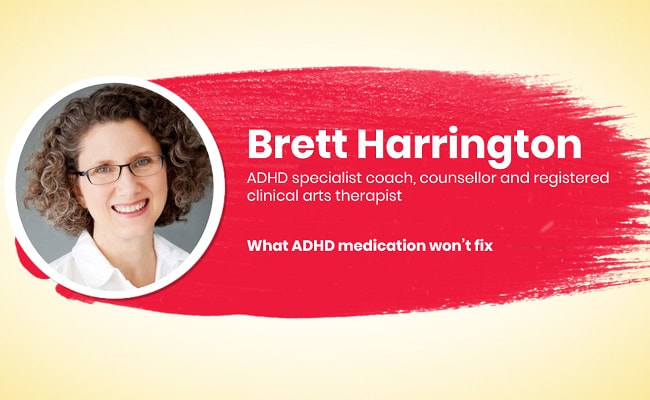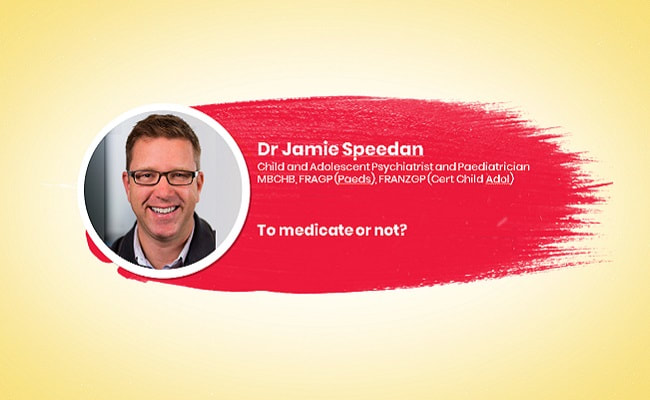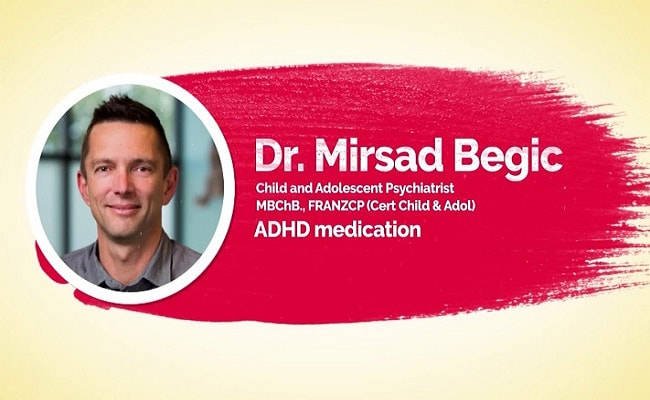|
Getting medication, and the type of medication depends on the presentation and severity of ADHD symptoms and the level and timing of its impact on the recipient's ability to function.
Up to 80% of people with ADHD also have other mental health conditions, such as anxiety, depression, personality disorders, learning difficulties and substance use disorders. These additional challenges (called co-morbidities) and their treatment can affect ADHD and vice versa. For example, some stimulant medications can make anxiety symptoms worse, so it's important these are also understood as part of any assessment for ADHD. Your prescribing doctor can usually safely combine treatments for comorbidities (i.e. depression) and ADHD. Your treatment plan will depend on your overall mental health. |
|
Prescribing doctors can choose from many types of medications to control symptoms of ADHD. They differ in the way they work, how long they work and how strong they are.
You and your prescribing doctor will work together to figure out which medication is right for you, along with the ideal dose (amount) and schedule (how often or when you need to take it). As each individual is unique it can take some time to find the best result for you. A good time to start the trial of medication is during the holidays or weekends so you can observe any changes and note any unwanted side effects. It’s important to seek immediate medical advice from a medical doctor should there be any serious unwanted side effects (although this is very rare). |
|
Ensure you have regular follow up appointments to review the progress of effectiveness of the medication. Note any side effects that concern you.
The broad types of medications most widely used to treat ADHD in New Zealand include: Experts generally consider these medicines safe when they're monitored properly by a specialist medical professional. Serious problems are rare. Discuss the risks and benefits of these medications with your doctor. One of the best ways to gauge a person’s progress while taking ADHD medication is to monitor the medication’s effects on the individual’s target symptoms. These are the symptoms that impact you the most in your everyday life. |
FAQs on ADHD medication
Q: If my Specialist suggests medication for treatment, do I have to take it/give it to my child?
A: No, you do not have to take it/give your child medication if you prefer not to. It’s your choice, not the doctors. However, you might need to have an alternative plan.
A: No, you do not have to take it/give your child medication if you prefer not to. It’s your choice, not the doctors. However, you might need to have an alternative plan.
Q: What are the alternatives to medication for ADHD treatment?
A: There are many things you can try which can help.
A: There are many things you can try which can help.
- Tips for you - check out some of our tips for parents of children with ADHD or adults with ADHD.
- Tips if you work in education, check out our information for ADHD in schools or ADHD in tertiary education.
- Attend support groups to share experiences and strategies with others who are in similar situations and can sympathise and support.
- Educate your family - many other families have been through this so read what they have had success with and share these with your family.
- Parenting programmes are worthwhile, especially if they have incorporated strategies that can help you manage ADHD in your family.
- Other disciplines that have helped children and adults with ADHD are:
- acupuncture
- brain gym
- chiropractics
- counselling
- Cranial Osteopathy
- diet, including supplements (especially zinc and EFA’s)
- homeopathy
- naturopathy
- Occupational Therapy, and/or
- therapists of all kinds can help if ADHD is clearly understood (preferably on recommendation only).







